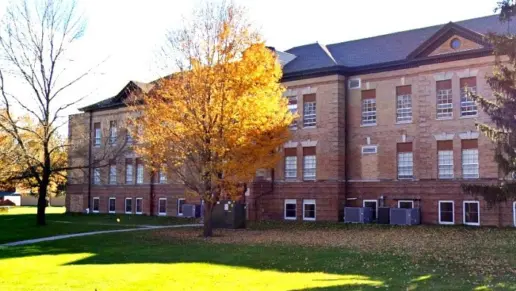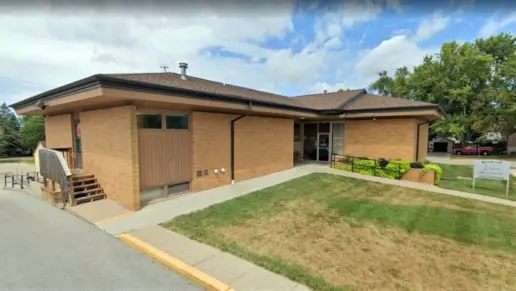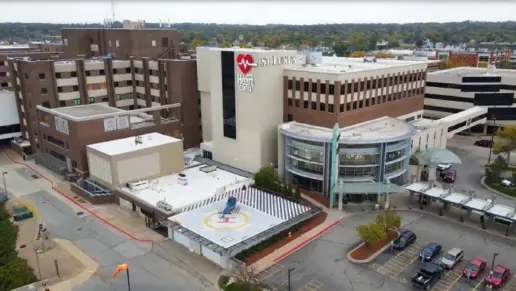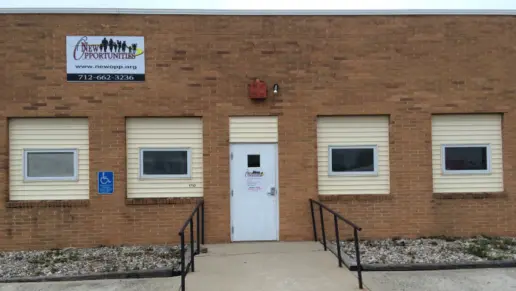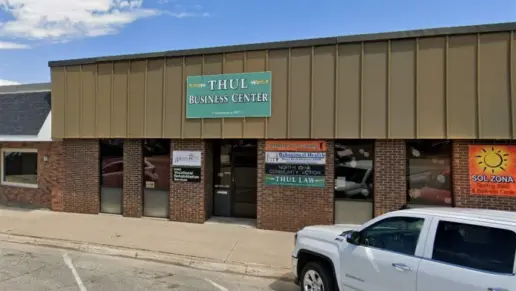About Seven 12 House
Youth Shelter Services (YSS) is a mental health and addiction treatment center offering inpatient and outpatient programs for youth in Ames, Iowa. They provide community resources, psychiatric services, addiction treatment programs, and sober living homes.
YSS addresses adolescent addiction and mental health-related problems for youth aged 12 to 18. The individualized program includes clinical assessments and treatment planning for substance use disorders and co-occurring mental health disorders, residential treatment, 12-step programs, counseling, peer support programs, education, SAT preparation, and family support in a home-like atmosphere.
Using a whole-person approach, assessments at YSS help to evaluate patients for substance use disorders and/or co-occurring mental health conditions, like anxiety or depression. Treatment plans use a range of evidence-based behavioral therapies, including individual counseling and group therapy.
The YSS adolescent program is a 15-bed program for substance use and co-occurring disorders for youth. Using a trauma-informed approach, clinicians support patients in getting to the root of their addiction and support enhancing overall mental and physical health. Therapies involve cognitive behavioral therapy, Systems Training for Emotional Predictability and Problem Solving (STEPPS), trauma therapy, psychoeducation to help with relapse prevention and enhance coping skills, and multidimensional family therapy.
YSS offers students the ability to continue education within the IOWA school district while in residential treatment. Using tutors or state-registered teachers, students are supported with classwork and exam preparation, like SAT or ACT. Counselors also support students reintegrating into school once treatment is completed.
YSS acknowledges that recovery doesn’t end once treatment is complete – it is a lifelong journey. Following treatment, counselors support program participants to reintegrate into the community and continue their journey in recovery.
YSS accepts private insurance, Medicaid, Medicare, and self-pay, and also has financial assistance and sliding scale payments available.
Gallery
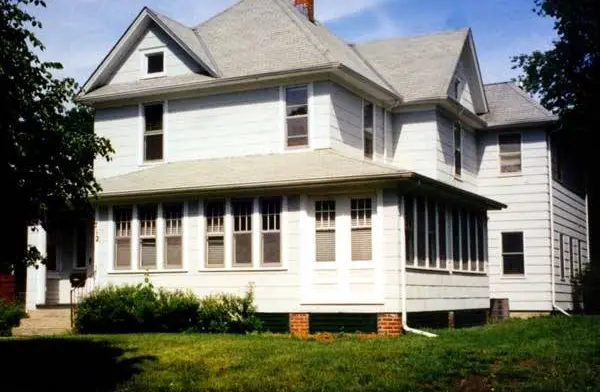
Location
Other Forms of Payment
Private insurance refers to any kind of healthcare coverage that isn't from the state or federal government. This includes individual and family plans offered by an employer or purchased from the Insurance Marketplace. Every plan will have different requirements and out of pocket costs so be sure to get the full details before you start treatment.
Self-pay involves paying for treatment out of your own pocket. You can use savings or credit, get a personal loan, or receive help from family and friends to fund your treatment. If you don't have insurance or your insurance plan doesn't cover a specific program, self-pay can help ensure you still get the care you need.
Financial aid can take many forms. Centers may have grants or scholarships available to clients who meet eligibility requirements. Programs that receive SAMHSA grants may have financial aid available for those who need treatment as well. Grants and scholarships can help you pai for treatment without having to repay.
Sliding scale payments are based on a client's income and family size. The goal is to make treatment affordable to everyone. By taking these factors into account, addiction recovery care providers help ensure that your treatment does not become a financial burden to you or your family, eliminating one barrier to care.
Medicare is a federal program that provides health insurance for those 65 and older. It also serves people under 65 with chronic and disabling health challenges. To use Medicare for addiction treatment you need to find a program that accepts Medicare and is in network with your plan. Out of pocket costs and preauthorization requirements vary, so always check with your provider.
Military members, veterans, and eligible dependents have access to specific insurance programs that help them get the care they need. TRICARE and VA insurance can help you access low cost or no cost addiction and mental health treatment. Programs that accept military insurance often have targeted treatment focused on the unique challenges military members, veterans, and their families face.
Medicaid is a state based program that helps lower-income individuals and families pay for healthcare. Medicaid covers addiction treatment so those enrolled can use their coverage to pay for rehab. When a program accepts Medicaid the client often pays very little or nothing out of their own pocket.
Addiction Treatments
Levels of Care
Treatments
The goal of treatment for alcoholism is abstinence. Those with poor social support, poor motivation, or psychiatric disorders tend to relapse within a few years of treatment. For these people, success is measured by longer periods of abstinence, reduced use of alcohol, better health, and improved social functioning. Recovery and Maintenance are usually based on 12 step programs and AA meetings.
Drug rehab in Iowa is available in many formats. A variety of inpatient and outpatient options provide programs that are tailored to individual needs, making recovery possible for everyone.
Many of those suffering from addiction also suffer from mental or emotional illnesses like schizophrenia, bipolar disorder, depression, or anxiety disorders. Rehab and other substance abuse facilities treating those with a dual diagnosis or co-occurring disorder administer psychiatric treatment to address the person's mental health issue in addition to drug and alcohol rehabilitation.
A combined mental health and substance abuse rehab has the staff and resources available to handle individuals with both mental health and substance abuse issues. It can be challenging to determine where a specific symptom stems from (a mental health issue or an issue related to substance abuse), so mental health and substance abuse professionals are helpful in detangling symptoms and keeping treatment on track.
Opioid rehabs specialize in supporting those recovering from opioid addiction. They treat those suffering from addiction to illegal opioids like heroin, as well as prescription drugs like oxycodone. These centers typically combine both physical as well as mental and emotional support to help stop addiction. Physical support often includes medical detox and subsequent medical support (including medication), and mental support includes in-depth therapy to address the underlying causes of addiction.
Programs




Clinical Services
Cognitive Behavioral Therapy (CBT) is a therapy modality that focuses on the relationship between one's thoughts, feelings, and behaviors. It is used to establish and allow for healthy responses to thoughts and feelings (instead of unhealthy responses, like using drugs or alcohol). CBT has been proven effective for recovering addicts of all kinds, and is used to strengthen a patient's own self-awareness and ability to self-regulate. CBT allows individuals to monitor their own emotional state, become more adept at communicating with others, and manage stress without needing to engage in substance abuse.
Dialectical behavior therapy helps you learn healthier ways to cope with your emotions and life stressors. The goal is to find a balance between acceptance of who you are and the advantages of making changes. You will work with your therapist to strike this balance and develop skills for better emotional regulation.
Group therapy is any therapeutic work that happens in a group (not one-on-one). There are a number of different group therapy modalities, including support groups, experiential therapy, psycho-education, and more. Group therapy involves treatment as well as processing interaction between group members.
In individual therapy, a patient meets one-on-one with a trained psychologist or counselor. Therapy is a pivotal part of effective substance abuse treatment, as it often covers root causes of addiction, including challenges faced by the patient in their social, family, and work/school life.
During motivational interviewing in Iowa, the client and therapist collaborate to identify any discrepancies in the client's current situation and future goals. By asking open ended questions and using reflective listening skills, the therapist encourages the client to reach their own conclusions and make a commitment to any needed changes in their life.
Trauma therapy addresses traumatic incidents from a client's past that are likely affecting their present-day experience. Treating children and youth who have experienced trauma, Trauma Focused Cognitive Behavioral Therapy (TF-CBT) helps both the child and parent address the behavioral and emotional consequences of traumatic experiences.
Couples therapy in Iowa involves mediation, education, and psychotherapy. Participants learn about themselves and each other and how to successfully navigate challenges in the relationship. Sessions can include both joint and individual meetings with the therapist.
EMDR is a therapeutic modality originally developed to help process trauma. EMDR therapy is a non-invasive, evidence-based intervention that facilitates adaptive information processing. Through EMDR therapy, clients are able to reprocess traumatic information until it is no longer psychologically disruptive.
YSS offers Multidimensional Family Therapy (MDFT) for youth who are struggling with addiction – or are at risk for addiction – and are experiencing behavioral issues. This comprehensive, family-centered treatment approach is goal-oriented, and focuses on all of the relationships that may influence teens.
Life skills trainings involve all the skills a person must have in order to function successfully in the world. These include time management, career guidance, money management, and effective communication. Life skills teaches the practical necessities of functioning in society, which sets clients up for success in life, and therefore sobriety. Youth are also given the tools needed to learn about the process that goes into finding, securing and maintaining stable employment.
Nutrition therapy, aka medical nutrition therapy (MNT), is a way of treating physical, emotional, and medical conditions through diet. Specific dietary plans are designed by professional nutritionists or registered dietitians, and patients follow them in order to positively affect their physical and mental health.
Experiential therapy is a form of therapy in which clients are encouraged to surface and work through subconscious issues by engaging in real-time experiences. Through working with children in their natural language of play, this specialty helps a child develop decision making and coping skills, responsibility and self-control.
Amenities
-
Residential Setting
-
Private Rooms
Accreditations

The Commission on Accreditation of Rehabilitation Facilities (CARF) is a non-profit organization that specifically accredits rehab organizations. Founded in 1966, CARF's, mission is to help service providers like rehab facilities maintain high standards of care.
CARF Accreditation: Yes

State Licenses are permits issued by government agencies that allow rehab organizations to conduct business legally within a certain geographical area. Typically, the kind of program a rehab facility offers, along with its physical location, determines which licenses are required to operate legally.
State License: Iowa
